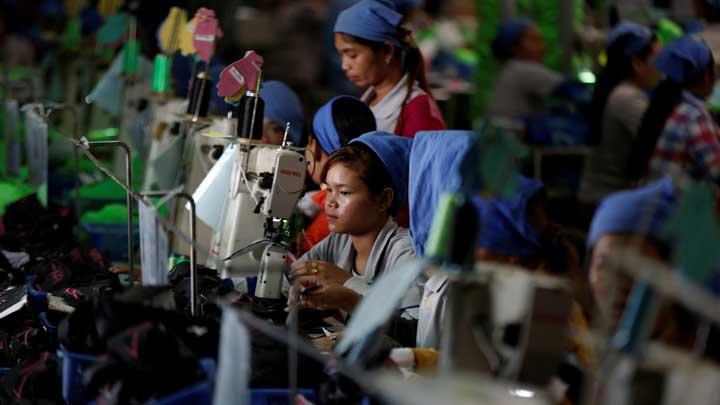
By: Christopher S Tang, a professor at the UCLA Anderson School of Management, Los Angeles
A formal identity and a mobile phone are two key weapons in the global fight against poverty.
More women than men are poor, more women live with food insecurity, and in the majority of countries in the world, more women than men do unpaid family work.
This is why many scholars and world leaders such as former UN Secretary-General Kofi Annan argue empowering women is the most effective way to improve humanity.
For many women, empowerment begins with identity - a prerequisite for accessing services and exercising their rights. In 2019, the World Bank estimated that one out of every two women in low-income economies did not have a national identity card or something similar.
As a critical first step to empowering women, the World Bank has worked with over 40 countries to develop digital ID systems to empower women.
In Pakistan, for example, millions of women now possess a Computerised National Identity Card (CNIC) which allows them, rather than their husbands or brothers, to access government income support programs.
Armed with a formal identity, existing and emerging technologies are immediately available for empowering women economically.
First, mobile phones are ubiquitous, and they can be helpful. Out of 456 million unique subscribers in Sub-Saharan Africa in 2020, 239 million users have mobile internet access, and 180 million have smartphones.
The widely accessible mobile phones attracted firms to develop mobile financial services such as Safaricom’s M-Pesa and M-Kesho in Kenya, as well as Ant financial services in China.
Not only are these services secure and convenient, but they also enable unbanked women to gain access to financial services such as savings and loans.
Besides access to financial services, mobile platform apps can help poor women to find jobs.
In China, when many restaurant workers (mostly women) were out of work during COVID-19 lockdowns, Alibaba established an online platform with restaurant chains such as Xibei and Yunhaiyao to develop an online employee-sharing plan so that over 3,000 restaurant workers could find temporary work during the pandemic.
And in the same way, social nudging has been found to work in encouraging people to meet fitness goals, leveraging internet-connected wearables and mobile apps can induce different forms of nudging to encourage girls to complete school.
Beyond mobile technology, blockchain can also help to improve gender equality and financially empower women.
Denver’s Coda Coffee partnered with bext360 to develop a blockchain that integrates machine vision, cloud computing, and artificial intelligence to trace coffee beans at every step: collecting, washing, drying, milling, exporting and roasting of beans through retail operations.
This helps to ensure farmers regardless of gender can collect fair payments, and traders to leverage information as verifiable collateral for loan applications.
Widely available solar technology can also change women’s fates. As of 2020, over 3 billion off-the-grid households rely on women to collect fuel wood to meet their energy needs.
This burden deprives women of accessing education or jobs. But solar cookers enabled women in rural Nicaragua to produce and sell baked goods, candies and roasted coffee beans.
Coca-Cola meanwhile has launched the 5by20 initiative to empower 5 million women by 2020.
One of the initiatives in India entails the development of a solar-powered “eKOCool” cooler that can enable a female store owner to sell ice-cold drinks, operate at night (by charging her solar lanterns), and offer mobile phone charging service by tapping into the charging ports provided by eKOcool coolers.
Earlier gains on poverty reduction have been set back by the pandemic, with women faring worse.
Leveraging emerging technologies to empower women economically enables them to find jobs, obtain fair wages, improve operational efficiency in their micro-businesses, improve their physical safety and improve their access to education and financial services.
Originally published under Creative Commons by 360info™.
*) DISCLAIMER
Articles published in the “Your Views & Stories” section of en.tempo.co website are personal opinions written by third parties, and cannot be related or attributed to en.tempo.co’s official stance.























